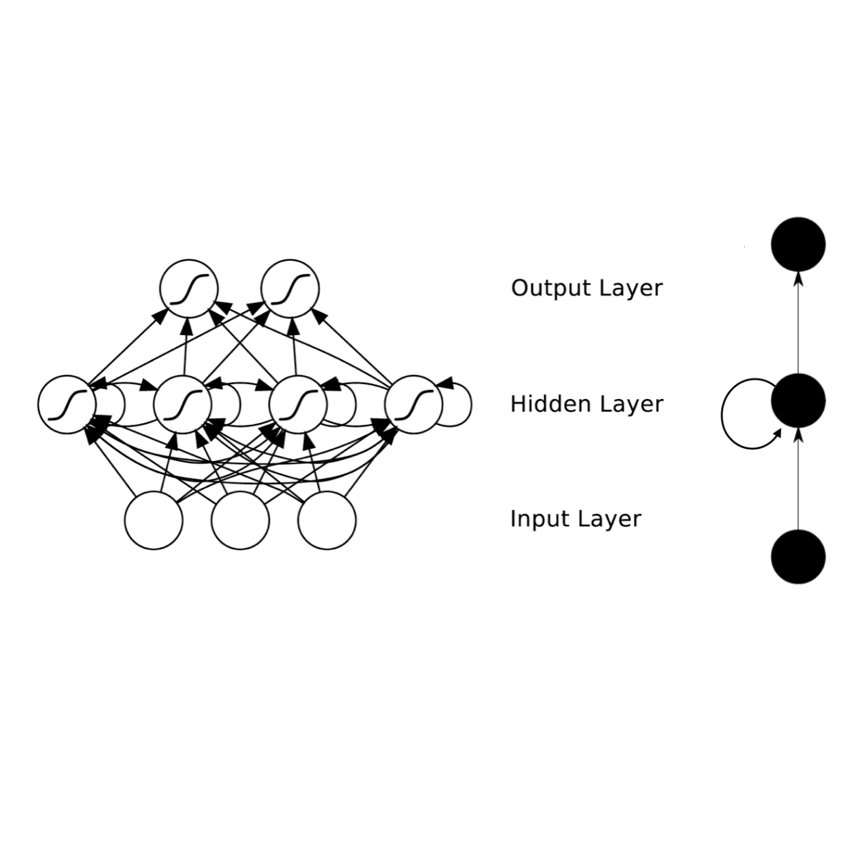We present a hybrid quantum-classical recurrent neural network (QRNN) architecture in which the entire recurrent core is realized as a parametrized quantum circuit (PQC) controlled by a classical feedforward network. The hidden state is the quantum state of an $n$-qubit PQC, residing in an exponentially large Hilbert space $\mathbb{C}^{2^n}$. The PQC is unitary by construction, making the hidden-state evolution norm-preserving without external constraints. At each timestep, mid-circuit readouts are combined with the input embedding and processed by the feedforward network, which provides explicit classical nonlinearity. The outputs parametrize the PQC, which updates the hidden state via unitary dynamics. The QRNN is compact and physically consistent, and it unifies (i) unitary recurrence as a high-capacity memory, (ii) partial observation via mid-circuit measurements, and (iii) nonlinear classical control for input-conditioned parametrization. We evaluate the model in simulation with up to 14 qubits on sentiment analysis, MNIST, permuted MNIST, copying memory, and language modeling, adopting projective measurements as a limiting case to obtain mid-circuit readouts while maintaining a coherent recurrent quantum memory. We further devise a soft attention mechanism over the mid-circuit readouts in a sequence-to-sequence model and show its effectiveness for machine translation. To our knowledge, this is the first model (RNN or otherwise) grounded in quantum operations to achieve competitive performance against strong classical baselines across a broad class of sequence-learning tasks.
翻译:暂无翻译





